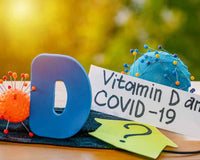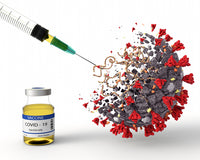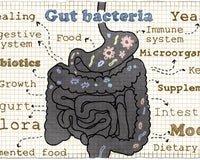It’s early morning, just before dawn. You can feel the stillness and dampness in the air as you slice through it on your morning run. Just as you catch your stride, all of a sudden a muscle cramp or ache grabs a hold of you and just will not go away.

Naturally Relieve Cramping and Muscle Soreness
There still is not a complete understanding as to why your muscles might cramp up on their own.
There are a number of things that can contribute to muscle soreness and cramping, such as pregnancy, nerve compression, exercise, electrolyte imbalances, and lowered blood supply to the muscles.
Working to relieve the discomfort can be difficult, but there are a number of ways to take care of the problem, and a number of popular natural remedies that don’t normally work as shown by current evidence from the medical community.
Stop Muscle Cramping
One great and very simple tool that you can use to combat muscle cramping is utilizing a foam roller.
When you use a foam roller after exercising, you can help alleviate muscle soreness and cramping, and even improve your ability to exercise and do athletic activities the next day.
End Muscle Cramps Once and For All
Harvard physical therapists have said that using a foam roller for 30 seconds to two minutes on each area of the body can be extremely beneficial in remedying sore muscles and in preventing muscle cramps.
Stop Muscle Soreness
Ginger is another supplement that has been shown to possibly have a reductive effect on muscle soreness in certain trials.
A small placebo-controlled, randomized, double-blind trial found that when experienced runners took 1.4 grams of a powdered ginger supplement for 5 days, they experienced lessened muscle soreness from a run on day three in the middle of the supplementation period.
During a review of a number of clinical trials, researchers found that ginger consumed in doses up to 4 grams directly after intense exercise helped to improve the recovery of the muscles, and to reduce their soreness.
It was also found that lower doses such as 2 grams of ginger did not show to be helpful when compared to placebo for muscle soreness, which suggests that higher doses or multiple days may be required to get the desired effects.

Curcumin, which is a compound derived from turmeric, has been found to have a great effect on muscle pain and muscle cramps. In some recent research, a review found that curcumin in doses of 150 to 5000 mg was able to help reduce muscle soreness after exercising.
One of the great things about curcumin is that it can even work on an as needed basis. Individual doses from 150-200 mg have even proven to be effective for muscle aches and pains after exercise.
End Muscle Cramps Once and For All
Another interesting thing found in this review was that small doses taken for a consecutive week before exercising had no effects on muscle soreness after exercise, but the exact same small dose of 90 mg twice daily taken after exercising for 4 days gave relief.
Still, some other studies in the review using like doses did not definitively find that curcumin had any effect on improving muscle tenderness and soreness compared with placebos.
The effects of these studies could be affected by differences in the type of exercise, or the participants.
Tart cherry and pomegranate juice have been theorized to have some great capabilities as far as reducing muscle soreness.
A small placebo-controlled, randomized, double-blind trial found that drinking 12 ounces of tart cherry juice twice a day for a full week reduced the amount of pain that participants in a 16 mile run reported overall.
During a research review, similar results were also found about the effects of drinking tart cherry juice twice daily.

One study also found that soreness was diminished by drinking pomegranate juice, as well.
Some of the research about consuming these differing juices has shown mixed results in relation to muscle soreness.
In men who were nonresistance trained, a recent study compared placebo drinks to tart cherry and pomegranate juice based on their impact on muscle soreness.
End Muscle Cramps Once and For All
The researchers in this study were slightly surprised to find that neither of these juices seemed to have any great effect on muscle soreness when compared to the placebo drink.
Myths and Contra Productive Cramp Treatments
It’s a long held belief that after an extended period of intense exercise that a short period of moderate-to-low intensity exercising can help avoid injury and muscle soreness, but this is no longer believed to be the case.
A study review done in 2018 showed that soreness, range of motion, and stiffness were not reduced by active cool-downs, and that they might even reduce energy storage in the muscles.

Researchers also found in this same review that muscle soreness was not lessened with static stretching before or after exercise.
According to a peer review, oral magnesium was unlikely to assist with muscle cramping in the elderly, and there were also inconsistent findings in women who are pregnant.
In a recent trial that was randomized and placebo-controlled, no difference was found in leg cramps in pregnant women with magnesium or the placebo.
One of the other natural remedies that you often hear of for muscle relaxation is taking an epsom salt, or magnesium sulfate, bath.
There have even been a number of float centers that have taken hold of the market in recent years.
In these centers, there are a number of sensory deprivation tanks which are filled with water that is rich in magnesium, making them a go-to spot for relaxation and escape from the urban jungle.
In a study of men who were nonathletic, it was found that those who floated for an hour after exercise perceived their pain to be less than those who had an hour or general passive recovery.
These results are difficult to pin on magnesium, though, as the many other factors in place in the study were not taken into account, such as the sensory deprivation, and the positioning of the body.
Either way, a nice warm relaxing bath can quite possibly alleviate some muscle cramping and soreness, but the effects of epsom salt in the bath are up for debate.







